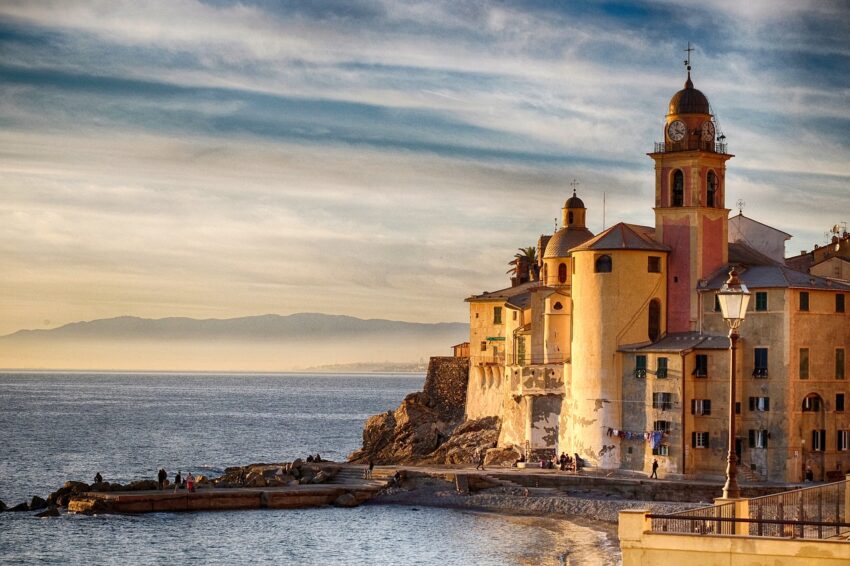Home » TRAVEL NEWS UPDATES » Italy’s Iconic Beaches Face Change: Shrinking Public Spaces and New Rules Threaten Seaside Picnic Tradition by 2025
Friday, September 6, 2024
Italy’s stunning beaches have long been a magnet for both locals and international tourists. Since the tourism boom of the 1950s, beach picnics have been a beloved tradition for families and friends, gathering by the seaside to enjoy homemade food, drinks, and the picturesque coastlines. However, this cherished custom is at risk of fading away due to increasing commercialization and shrinking public beach spaces.
Evolving Beach Concessions and Growing Controversy
The heart of the issue lies in Italy’s beach concessions, where coastal businesses rent out sections of the beach to provide amenities like sun loungers, umbrellas, and refreshments. For generations, these concessions have been passed down through families, especially in coastal towns, creating a lucrative yet insular market. However, the European Commission has raised concerns over the lack of transparency in this process, stating that it breaches competition rules.
By early 2025, Italy will face a significant change in its beach concession policies, as the European Union pressures the Italian government to open concessions to fairer competition. Despite efforts by Prime Minister Giorgia Meloni’s government to soften the stance, the existing system will likely need to make concessions itself. Economist Pietro Paganini pointed out that increased competition would benefit everyone, especially since these concessions, located on public land, are being exploited at low costs, leaving fewer free beaches available for public use.
The Battle for Public Beach Space
Data from the Meloni government shows that around 33% of Italy’s 11,000-kilometer coastline is under concession. Yet, considering much of the coastline is rugged and unsuitable for development, the figure represents a significant portion of usable beach space. This leaves fewer areas where locals and tourists alike can enjoy the beaches without paying. Mare Libero, an organization advocating for public access, has called for at least 50% of Italy’s usable beaches to be returned to the public, ensuring that beachgoers of all budgets can enjoy the sea.
The gradual disappearance of public beach space has already affected Italy’s longstanding tradition of seaside picnics. Families who once brought their own food and set up gatherings on the beach are finding it increasingly difficult to do so. Beach concession owners, keen on maintaining control over their services, often try to prevent visitors from bringing their own drinks and food, preferring they purchase refreshments from the establishment itself.
Struggles of Modern Beachgoers
According to Corriere del Mezzogiorno, this has sparked a “battle” between beachgoers and concession owners, with many feeling that they are being forced to spend more than they would like just to enjoy a day by the sea. The region of Puglia even had to issue a statement clarifying that “there is no obligation to use the refreshment points of the bathing establishment,” and that visitors have the right to bring their own food and drinks, provided they do so in a manner respectful of the public setting.
However, the lack of clear regulations on what is “appropriate” in terms of food and drink brought from outside has given concession owners leeway to impose their own rules. This has made it difficult for those with smaller budgets to continue enjoying beach picnics as they did in the past. For many families, the simple pleasures of sharing homemade meals by the sea are being replaced by expensive outings to beach bars and restaurants.
Global Implications for Travelers
The implications of this shift extend beyond Italy’s borders. As Italy remains one of the top destinations for global travelers, tourists who visit its iconic beaches may soon find fewer affordable options for enjoying the coastline. The rise of beach concessions has made it more challenging for budget-conscious tourists to access beaches without spending on amenities and refreshments. The erosion of free beach space risks turning Italy’s coasts into exclusive areas where only those who can afford it get the full experience.
For international travelers who are drawn to Italy’s charm, the possibility of the seaside picnic tradition fading away is a reminder of how commercialization can impact cultural practices. Where once a picnic on the sands was an affordable and authentic way to experience Italy’s beaches, tourists may soon find themselves limited to pricier alternatives, diminishing the spontaneous, laid-back spirit that has defined these experiences for decades.
A Changing Seaside ExperienceThe European Union’s intervention will likely change the structure of Italy’s beach concessions by 2025, opening up competition and potentially affecting beach culture.Mare Libero advocates for a restoration of public beach space, asking that 50% of usable beaches be free for all to enjoy.The fading seaside picnic tradition highlights growing inequality in beach access, especially for those on tighter budgets, both locals and tourists.The Future of Italy’s Beaches
As the deadline for policy reform approaches, the future of Italy’s beach culture hangs in the balance. Will concessions become more transparent and competitive, allowing for better public access? Or will beaches become increasingly commercialized, pushing out traditions like the seaside picnic in favor of profit-driven enterprises? For now, visitors to Italy may still find spaces to spread out a blanket and enjoy a homemade meal by the sea, but as public beaches shrink, this quintessential Italian experience may soon be a relic of the past.


Dining and Cooking